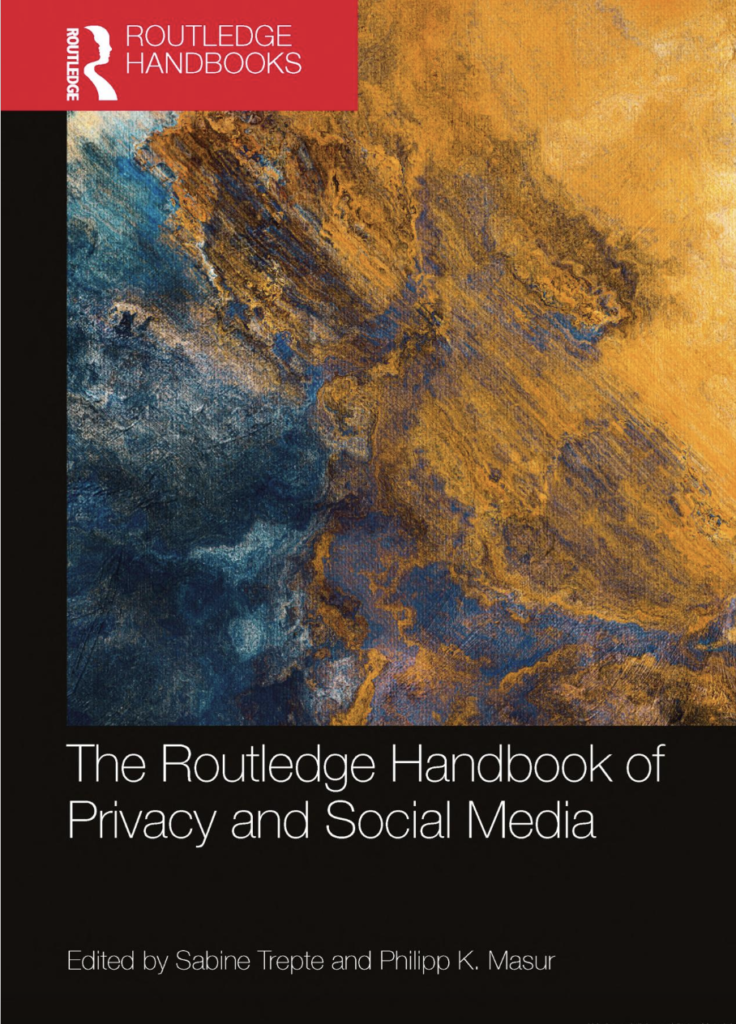Over the last two decades, privacy has been a staple topic in communication science and other disciplines. Particularly since the advent of social media, privacy and self-disclosure processes have been central to many empirical investigations. By now, thousands of studies have been published, diverse theoretical accounts emerged, and heterogeneous – at times contradictory findings – paint a granular, but complex picture of the privacy research landscape.
At this point in time, Sabine Trepte and I believed that it was time to pause and tack stock. In order to substantiate existing privacy research and outline fruitful avenues for future research, we gathered the wisdom and expertise of many great privacy scholars and edited the “Routledge Handbook of Privacy and Social Media“, a compendium of 30 chapters by 60 international authors, which was published today
Renowned scholars in the fields of communication, psychology, philosophy, informatics, and law look back on the last two decades of privacy research and project how the topic will develop in the next decade. The first begins with an overview of key scholarship in online privacy and discusses the most prominent theoretical perspectives. The second part expands to focus on influential factors shaping privacy perceptions and behaviors, such as culture, literacy, gender, and trust. Part three continues with specific examinations of concerns around vulnerable populations such as children, adolescents, older adults, and minorities. It then looks at how privacy is managed and the implications of interacting with artificial intelligence. Finally, it concludes by discussing feasible solutions to some of the more pressing questions surrounding online privacy.
Title: The Routledge Handbook of Privacy and Social Media
Editors: Sabine Trepte & Philipp K. Masur
Copyright: 2023
Publisher: Routledge, part of the Taylor & Francis Group
eBook ISBN: 978-1-003-24467-7
Hardcover ISBN: 978-1-032-11161-2
DOI: 10.4324/9781003244677
You can buy the hardcover book or the ebook here.
